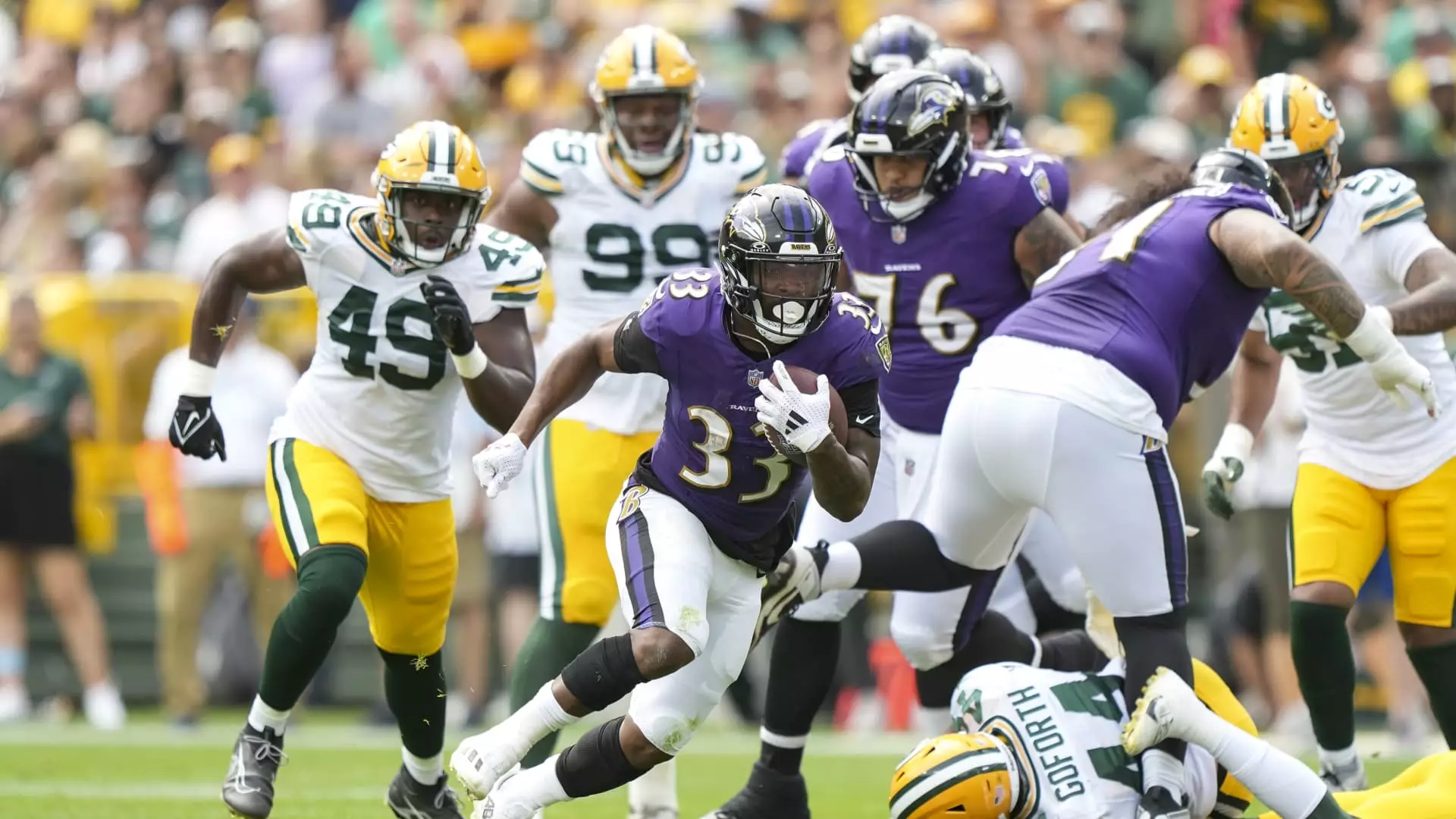The National Football League (NFL) is embarking on a transformative journey, revolutionizing how fans engage with the sport through innovative streaming partnerships. With a keen understanding of the shifting media landscape, the NFL’s executive vice president of media distribution, Hans Schroeder, articulated this shift during a recent event, emphasizing the league’s commitment to harnessing the power of online streaming to expand its fanbase both in the U.S. and internationally. This strategic approach reflects a broader understanding that traditional broadcasting methods must evolve to meet the demands of modern audiences.
At the heart of the NFL’s strategy is a monumental 11-year, $111 billion media rights agreement established in 2021, which laid the groundwork for integrating streaming services into its broadcasting portfolio. This deal signified a major turning point; “Thursday Night Football” found a new home on Amazon’s Prime Video, and other long-standing broadcast partners were on board to initiate streaming, marking a pivotal moment in modern sports broadcasting.
This paradigm shift did not stop at Thursday night games. The following year brought further advancements: the coveted “Sunday Ticket” package transitioned to Google’s YouTube TV, enabling viewers to access out-of-market games seamlessly. Meanwhile, Comcast’s NBCUniversal capitalized on this trend by streaming its “Sunday Night Football” games on Peacock, creating a multifaceted approach that catered to both traditional viewers and the burgeoning audience of streaming enthusiasts.
Schroeder reiterated the long journey toward this pivotal era, recalling a formative meeting with the late Apple CEO Steve Jobs. This encounter highlighted the essential evolution of viewing habits influenced by technology, ultimately leading the NFL to pursue mobile streaming rights for live games. This initiative marked the inception of a broader strategy aimed at future-proofing the league against the quickly changing preferences of its audience.
The 2023 NFL Wild Card game, exclusively available on Peacock, emerged as a testament to the league’s successful pivot to streaming. Garnering 27.6 million viewers, it set a record as the most-streamed live event in history, exemplifying the significant impact streaming can have on fan engagement and viewership metrics. In Schroeder’s words, this event marked a “transformative moment,” underscoring the potential for streaming platforms to not only match but surpass traditional broadcasting numbers.
As the NFL seeks to amplify its reach beyond the U.S. borders, streaming serves as a vital tool in this expansion effort. Recent developments included the NFL’s inaugural game in Brazil, which was also streamed exclusively on Peacock, attracting an impressive average of 14 million viewers. Such milestones indicate a powerful ability to tap into international markets, showcasing the league’s growing relevance on the global sports stage.
Streaming platforms provide the NFL a unique opportunity to navigate new broadcasting territories. Rick Cordella, NBC Sports President, acknowledged the league’s willingness to experiment with dynamic strategies aimed at meeting viewer demands, particularly in the ever-competitive streaming landscape. Since its launch, Peacock has embraced the inclusion of various sports, starting with the English Premier League and subsequently featuring NFL content—demonstrating how streaming can drive subscriber growth.
Lori Conkling, global head of TV, film, and sports partnerships at YouTube, reinforced the notion that sports viewership is burgeoning on digital platforms. The addition of “Sunday Ticket” to YouTube’s offerings showcases how data-driven insights can shape decisions to align with prevailing consumer interests.
Despite the powerful surge in streaming viewership, the NFL recognizes the importance of maintaining its traditional broadcast partnerships for the time being. Live sports continue to draw large audiences on traditional television, thereby establishing a dual strategy that caters to both traditional and streaming viewers. While the NFL embraces the shift towards streaming, it remains mindful of its roots, recognizing that a balanced approach is crucial in navigating this transition.
While the majority of its media rights deals are tied to established broadcast networks, the NFL acknowledges the need for adaptation to retain its status in an increasingly streaming-oriented market. Schroeder succinctly articulated this balancing act, emphasizing the league’s desire to move with consumer habits while still leveraging the foundational elements of traditional broadcasts.
The NFL’s collaboration with Netflix serves as a bold indication of its intent to venture into uncharted territory with global implications. By streaming select games over the next few years, the league aims to cultivate an international audience, with projections suggesting that global viewership could rival domestic numbers.
As streaming continues to reshape the viewing experience, the NFL’s proactive approach ensures its leadership role in the evolving landscape of sports entertainment. Whether it’s through innovative partnerships, record-setting streaming events, or expanding its footprint in international markets, the NFL is well on its path to redefine its narrative through the expansive possibilities of digital media. The streaming revolution is not merely a trend; it’s a seismic shift that promises to reshape the future of the NFL and its fans worldwide.

